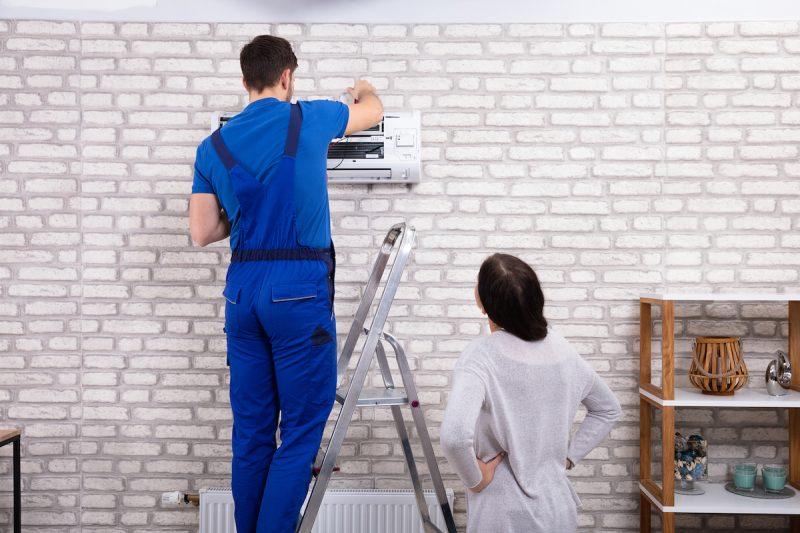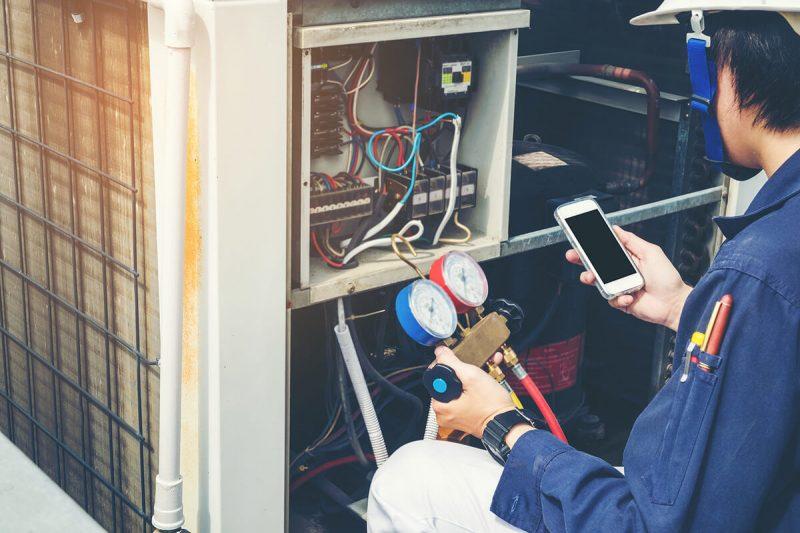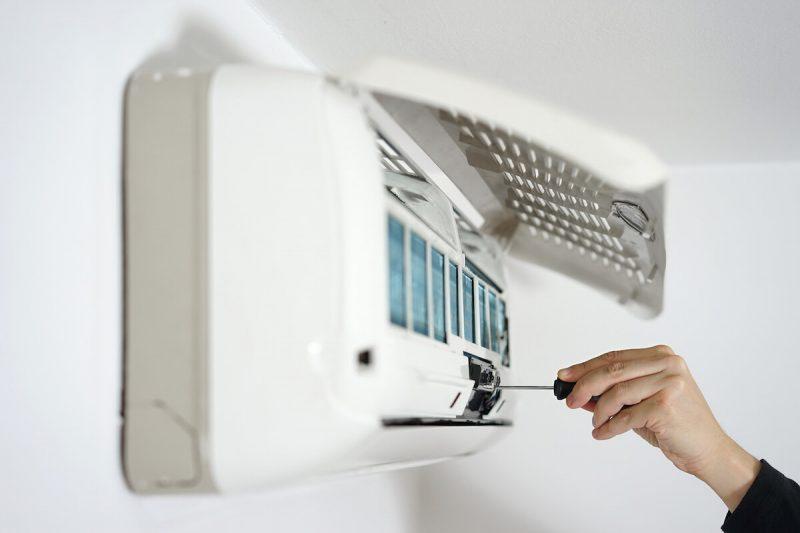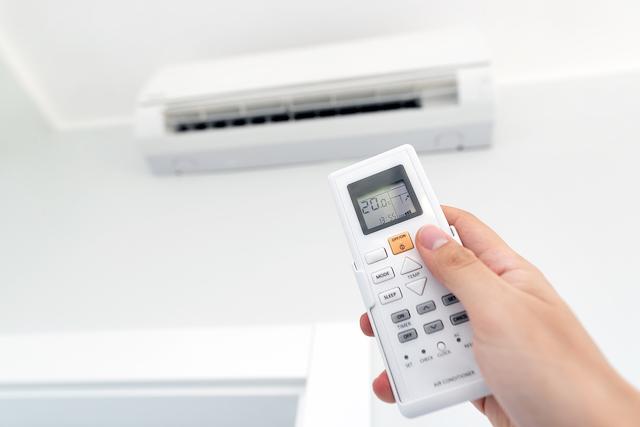Part 1: Introduction

A noisy aircon can disrupt comfort and peace in your home or office, and often signals an underlying issue that requires attention. From whirring and buzzing to hissing and squealing, unusual noises can be indicative of various problems within the system. These sounds, if left unchecked, may lead to decreased efficiency, higher energy consumption, or even costly repairs.
Addressing aircon noise early is crucial for preventing long-term damage, ensuring optimal performance, and maintaining a comfortable environment. By identifying the source of the noise and acting quickly, you can avoid more serious complications down the line.
In this article, we will explore common noisy air conditioner causes and provide aircon troubleshooting tips to help you address these issues effectively. With proper care and maintenance, your aircon can continue to run quietly and efficiently for years to come, keeping your space cool and comfortable without disrupting your peace.
Part 2: Common Causes of Aircon Noise

2.1. Faulty Fans and Motors
Faulty fans and motors are common causes of noisy aircons. If you hear whirring, buzzing, or grinding sounds, it is often a sign that the fan or motor is malfunctioning. Over time, dust, dirt, or wear and tear can cause the fan blades to become misaligned or the motor to overheat, leading to your aircon making noise. These issues can strain the system, reducing its efficiency and potentially causing further damage if left unaddressed.
To resolve this, regular cleaning and lubrication of the fan and motor can extend their lifespan and reduce noise. In cases where the problem persists, it may be necessary to order air conditioner repair parts to replace the fan or motor.
By maintaining clean components and addressing any motor or fan issues promptly, you can keep your aircon running quietly and efficiently, preventing further damage and improving performance. Regular aircon cleaning services by a professional can help ensure the longevity of these crucial components.
2.2. Improper Installation
Improper installation is another common cause of noisy aircons. When an aircon unit is not securely mounted or is poorly aligned, vibrations and rattling sounds can occur. Loose mounting or uneven positioning can cause parts to rub against one another or vibrate excessively, leading to disruptive noise. These issues are often more noticeable when the unit is first turned on or during operation.
To fix installation-related noise, ensure that the aircon is properly installed with all components aligned and securely fastened. If the unit is not level, it may also lead to uneven cooling and strain on the system.
For the best results, we recommend getting professional aircon installation services. Experts can ensure that the unit is mounted correctly, reducing noise and preventing long-term damage. Proper installation also contributes to better performance and energy efficiency, making it a worthwhile investment for your aircon’s longevity.
2.3. Dirty Coils and Condenser
Dirty coils and condensers are another common cause of a noisy aircon. When the evaporator or condenser coils accumulate dirt, dust, or debris, the system struggles to maintain optimal airflow, which can lead to buzzing, whining, or rattling noises. This build-up can also cause the aircon to overheat, further straining the system and amplifying the sound.
Regular cleaning of the coils helps ensure that the aircon operates efficiently and quietly. Coils should be cleaned at least once a year, or more frequently if the unit is exposed to dust or other contaminants. Neglecting this maintenance can result in a noticeable increase in noise, reduced cooling performance, and higher energy consumption.
Cleaning the coils yourself can be a viable way to address the issue, but for a thorough job, it is better to schedule professional aircon maintenance and servicing. A technician can safely clean the coils and ensure that your aircon is running smoothly and quietly.
2.4. Refrigerant Leaks
Refrigerant leaks are another common cause of a noisy aircon. When there is a leak, the refrigerant gas escapes, often creating a hissing or gurgling sound. This not only reduces the system’s cooling efficiency but also puts additional strain on the compressor, leading to further mechanical issues. If left unresolved, a refrigerant leak can even cause the aircon to stop cooling altogether.
To address this issue, it is essential to have a professional technician locate and seal the leak. Attempting to fix a refrigerant leak yourself is dangerous and could cause further damage to the unit. Additionally, the refrigerant levels will need to be properly recharged after the leak is sealed to restore the aircon’s cooling performance.
Regular aircon maintenance and periodic checks can help detect refrigerant leaks early, preventing prolonged issues and excessive noise. By addressing refrigerant leaks promptly, you can avoid higher repair costs and ensure that your aircon continues to operate at its best.
Part 3: Types of Aircon Noise and What They Indicate

3.1. Buzzing Sounds
Buzzing sounds in an air conditioner are often caused by electrical issues, such as a malfunctioning, noisy air conditioner compressor, motor, or loose wiring. These sounds can indicate problems that might lead to a system failure if not addressed promptly. A persistent buzzing noise often suggests that there is a loose or damaged component that is causing the electrical system to malfunction, which could lead to further damage or even a complete breakdown of the unit.
If you hear a buzzing sound, it is crucial to get aircon troubleshooting done by a professional technician. They can assess the electrical components, check for worn-out parts, and ensure that everything is properly connected. Ignoring buzzing noises can lead to more severe issues, such as compressor failure or electrical short circuits.
Regular aircon servicing is essential for identifying and resolving electrical problems before they escalate. Scheduling routine maintenance will not only help address buzzing sounds in noisy aircons, but also improve the overall performance and longevity of your air conditioner.
3.2. Hissing or Gurgling Sounds
Hissing or gurgling sounds from an air conditioner are often signs of refrigerant issues, such as leaks or low refrigerant levels. Refrigerant is vital for cooling the air, and any loss of this substance can significantly reduce the efficiency of your aircon, causing it to work harder and resulting in a noisy aircon. Hissing noises occur when the refrigerant gas escapes through small leaks, while gurgling may indicate a problem with the refrigerant flow.
If you hear these sounds, it is important to address the issue promptly. A professional technician can locate the source of the leak, repair it, and then recharge the refrigerant to restore the aircon’s cooling efficiency. Operating the unit with low refrigerant can cause long-term damage to internal components, such as the compressor, and aircon compressor repair is often costly.
Regular aircon servicing and other aircon repair services can help prevent refrigerant-related issues by ensuring the system is running at optimal levels and identifying any potential leaks before they lead to bigger problems.
3.3. Squealing or High-Pitched Noises
Squealing or high-pitched noises in an air conditioner are often caused by worn-out fan belts or malfunctioning motors. These noisy aircon sounds typically occur when the components are under stress or not functioning smoothly. A squealing noise can indicate that the fan belt is slipping, or it may suggest that the motor’s bearings are damaged and need lubrication or replacement.
To resolve this issue, regular maintenance, including lubrication of moving parts, can help prevent squealing noises. If this does not resolve your noisy aircon, it may be necessary to get air conditioning services that help replace the fan belt or motor. Ignoring such sounds can lead to further damage to the aircon system.
It is essential to inspect and maintain all moving parts of the air conditioner regularly, as this can significantly extend the unit’s lifespan and ensure quiet, efficient operation. Professional aircon servicing can help detect and address any potential issues early, preventing expensive breakdowns.
3.4. Clicking or Tapping Sounds
Clicking or tapping sounds in an air conditioner are often caused by debris caught in the fan blades or components like the compressor switching on and off. Loose parts can sometimes lead to noisy aircons, especially if screws or other fastenings have become loose over time.
To resolve this issue, start by inspecting the unit for any visible debris or obstructions in the fan blades and remove them carefully. If the clicking persists, check for any loose screws or components inside the unit and tighten them securely. Loose parts can lead to vibrations, which not only cause noise but may also cause further damage to the system over time.
Regular aircon servicing ensures that these issues, including noisy aircons, are addressed promptly. If you are unable to identify the cause of the clicking sound, seeking professional help can prevent potential damage and ensure the system is functioning smoothly. Regular maintenance keeps your aircon running quietly and efficiently.
Part 4: Troubleshooting Noisy Aircons

4.1. Tightening Loose Components
Loose components inside your air conditioning unit can cause vibrations and rattling noises. Over time, screws, fan blades, or other internal parts may become loose due to normal wear and tear or improper installation.
To fix this issue, regularly inspect your aircon for any loose parts. Tighten any screws or fasteners that may have come undone, ensuring all components are securely in place. Pay particular attention to the fan blades, as even minor looseness can cause significant noise.
Additionally, check that the aircon unit is properly mounted and that there are no imbalances causing unnecessary vibrations. Proper installation and maintenance can significantly reduce the risk of noise from loose components.
4.2. Checking Air Ducts for Blockages
Blocked air ducts can be a significant cause of noisy aircons. When ducts become obstructed with dust, debris, or other blockages, airflow is restricted, leading to whistling, rattling, or buzzing noises. These blockages not only affect the efficiency of your aircon but also contribute to excess noise during operation.
To resolve this issue, regularly inspect your air ducts for any signs of obstructions. Ensure that they are clear of dirt, dust, or other debris. Cleaning the ducts can significantly improve airflow, reducing unwanted noise and enhancing the overall performance of your air conditioning system.
If you are unsure how to properly clean or inspect the ducts, consider hiring a professional air conditioning service to ensure thorough cleaning and maintenance. By addressing any blockages and ensuring unrestricted airflow, you will not only reduce noise, but also improve the energy efficiency and cooling performance of your aircon, ultimately extending its lifespan.
4.3. Insulating Noisy Pipes or Vibration
Sometimes, the vibrations from water pipes or air ducts can cause unwanted noise in your air conditioning system. These vibrations can amplify and travel through walls, ceilings, and floors, making the noise more noticeable. The source of the noise is often due to loose components or poorly insulated pipes and ducts.
To resolve this issue, one effective solution is to add insulation around the pipes or air ducts. Insulation helps to dampen vibrations, reducing the amount of noise that travels through your home or office. You can use foam insulation or specialised vibration-dampening materials for better results.
Additionally, check for any loose parts or connections along the pipes and ducts. Tightening these connections will further reduce vibrations and prevent the noise from occurring. Regular maintenance and insulation improvements can ensure that your air conditioning system operates quietly, providing you with a more comfortable and peaceful environment. If necessary, consult a professional technician for more advanced solutions.
Part 5: When to Seek Professional Help

5.1. Persistent or Unusual Noises
If your air conditioner continues to make noise despite basic troubleshooting, it is time to consult a professional for an in-depth aircon troubleshooting. Persistent or unusual sounds could indicate deeper issues such as a malfunctioning compressor, electrical faults, or worn-out internal components. Addressing these problems early can help prevent costly repairs and further damage.
Professional technicians can conduct a thorough inspection to identify the root cause of the noise. They will examine the system’s refrigerant levels, check for electrical faults, inspect the compressor, and test other internal parts. Once the issue is identified, they can recommend the necessary repairs or replacements.
Seeking professional help ensures your air conditioning system is fully restored to optimal performance, maintaining a quiet operation. It is also a good idea to schedule regular maintenance to detect issues before they become major problems, keeping your air conditioner in top condition. Regular servicing can extend the lifespan of your unit, saving you money on energy bills and future repairs.
5.2. Preventive Maintenance
Regular professional maintenance is essential to keeping your air conditioner running smoothly and quietly. Scheduling periodic servicing allows technicians to spot potential issues early, preventing them from developing into more serious and costly problems. A well-maintained aircon runs efficiently, reducing the chances of unusual noise and enhancing overall performance.
Maintenance tasks typically include checking refrigerant levels, cleaning coils and filters, lubricating moving parts, and ensuring proper airflow. These actions help to prevent wear and tear on components, allowing your air conditioner to operate quietly and efficiently for longer.
By investing in scheduled maintenance, you can improve your unit's energy efficiency, extend its lifespan, and maintain a comfortable environment in your home or office. Regular servicing can also help keep the noise at bay, ensure that your system operates optimally, and reduce the risk of unexpected breakdowns, giving you peace of mind and saving you money in the long run.
FAQs
1. What is the most common cause of a noisy aircon?
The most common cause of a noisy aircon is a dirty or clogged air filter. When filters are blocked, airflow is restricted, causing the unit to work harder and produce more noise. Other causes can include malfunctioning motors, loose components, or refrigerant leaks, which also require attention.
2. How often should I clean my aircon filters?
Aircon filters should be cleaned every 1-2 months, depending on usage. If your air conditioner is used frequently or if you have pets, it may require more frequent cleaning. Regular cleaning ensures better airflow, energy efficiency, and helps reduce noise while extending the lifespan of your aircon.
3. Can I fix aircon noise issues myself?
Minor aircon noise issues, like cleaning filters or tightening loose parts, can be resolved on your own. However, for more complex problems such as refrigerant leaks or electrical malfunctions, it is better to seek professional assistance. Attempting repairs without expertise may cause further damage or void warranties.
Addressing a noisy aircon promptly is essential for maintaining optimal performance and extending the lifespan of your system. By diagnosing and resolving issues early, you can enjoy a quieter, more efficient aircon that provides consistent cooling without disruptions. Regular servicing and maintenance are integral steps to preventing noise problems and ensuring your aircon continues to operate smoothly.
Here at Airple, we offer a broad range of air conditioning services, from aircon troubleshooting to air conditioner repair parts to replace old and faulty ones. Our team of experienced and highly trained professionals are also dedicated to helping you resolve any aircon issue so you can enjoy the benefits of an aircon in peace.
For more information about our services or to schedule an appointment, please contact us today.
Sign up for our newsletter
Get the best content on user insights, design, and product management delivered to your inbox every week.
Share This Article



